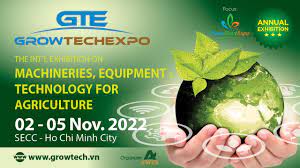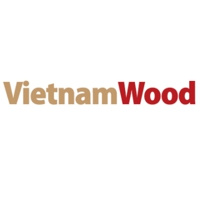- Read all
- Rice
- Fisheries
- Cassava
- Fertilizer & Pesticide
- Coffee
- Animal Feed
- Cocoa
- Seed
- Tea
- Wood
- Pepper
- Agricultural Cooperations
- Cashew
- Agricultural Investments
- Rubber
- Governmental Policies
- Sugarcane
- Agricultural Startup Ecosystem
- Corn
- Technological Innovations
- Spices
- Organic Agriculture
- Bean
- Food Manufacturing
- Fruit & Vegetable
- Agricultural Value Chain
- Flower
- Water & Waste Management
- Meat
- Processed Food
- Dairy
- Plant Originated Products
- General Agro Commodities
- Animal Originated Products
Vietnamese agriculture approaches challenges & opportunities 5.0
May 30, 2022
On May 29, Theme 2 of the International Conference on High Efficiency Agriculture in Vietnam 2022, organized by the Vietnam - Australia Innovation Network (NIC AU), took place in Hanoi in an online format. directly and online connecting with many demand points in the world such as the United States, Australia... The theme of this conference is about "Application of technology 5.0 to innovate sustainable development of the agricultural industry and supply chain. to improve the quality, distribution, and value of agricultural products in a circular manner”.

Deputy Minister of Agriculture and Rural Development Le Quoc Doanh spoke at the Workshop. Photo: Hoang Giang.
Opportunity to parallel goals
Speaking at the workshop, Deputy Minister of Agriculture and Rural Development Le Quoc Doanh said that the industrial revolution 4.0 has spread widely with the efforts of many countries in digital transformation leading to the rapid development of cities. technology-centric intelligence.
However, in the context that the world is facing many global challenges, such as the depletion of natural resources, the shrinking of cultivated areas, the warming of the earth, the growing economic disparity... It is very urgent to promote the application of scientific and technological advances in the economic sectors in general and agriculture in particular. In particular, Vietnam's agricultural industry is subject to tens of millions of farmers with limited production scale, low technological level, low labor productivity, vulnerability and many impacts of economic development. developed like a storm of industries.
“I think the 5.0 revolution is a great opportunity for the agricultural industry when the application of modern science and technology goes hand in hand with producers and here, tens of millions of Vietnamese farmers will be supported. access, training to improve skills, qualifications and capacity to adapt to new technologies, create multi-valued agricultural products, both in terms of economy and society, and raise incomes. This is also the sustainable development goal of Vietnam's agricultural industry in the new context," said Deputy Minister Le Quoc Doanh.
Mr. Vu Quoc Huy, Director of the National Innovation Center, Ministry of Planning and Investment, shared that, in order to bring positive impacts to the community, the National Innovation Center has connected thousands of hundreds of representatives, cooperatives, businesses to attend, listen and share ideas with domestic and international experts and scientists.

The conference is an opportunity to share knowledge, promote links and cooperation to expand business opportunities in the field of agriculture, especially smart agriculture.
Get into sync
Mr. Kenneth Tran, founder of Koidra Company, said that Koidra uses solving global problems as a driving force, such as increasing food demand but increasingly limited natural resources; lack of professional agricultural engineers to serve the transition to greenhouse and greenhouse farming; cultivation is mainly based on experience, not science - technology, so the efficiency is not high; The data and information are scattered, there is no concentration like the topics “4.0” or “5.0” Vietnam is aiming for.
Since then, Koidra has launched the Betafarm Company Project with the goal of building greenhouses in Vietnam as well as other countries in the region. “Vietnam has a lot of advantages, including resources and climate, a bright environment that is very suitable for the greenhouse farming model. Another special thing is that the Vietnamese market is having a growing demand for high quality and clean agricultural products. If the models give high productivity, it will open export opportunities to Southeast Asian countries. Vietnam can change, from a technology importer to an agricultural technology exporter.

Mr. Kenneth Tran, representative of Koidra company, expressed his ambition to build greenhouses in Vietnam with a productivity exceeding world standards. Photo: Hoang Giang.
Explaining from the process of industrial revolution (industrial revolution) from 4.0 to 5.0, Mr. Ha Van Thang, Chairman of the Vietnam Agricultural Business Council said, while Industry 4.0 is a combination of robots, human intelligence Creating, fast networking equipment and big data in a production environment, efficient and fast operation of factories and workshops that are completely dependent on technology, the Industrial Revolution 5.0 focuses on integration. human-machine interaction, human intelligence will work in harmony with cognitive computing, thereby enhancing worker skills, providing added value in production leading to customization and personalized goods products.
According to Mr. Ha Van Thang, innovation from the above industrial revolutions is the foundation of the circular economy and is also one of the factors that help agriculture develop sustainably.
“The circular economy should not be bound by space or scope, but also need to be pervasive and social, where key organizations and businesses lead and farmers participate in. family," said Mr. Thang.
According to experts, in order to form an agricultural production chain applying 4.0 or 5.0 technology that is best suited to the characteristics of Vietnam's agricultural industry, it not only requires the participation of people and businesses but also managers themselves. Relevant ministries and branches play a very important role.
A representative from the Ministry of Agriculture and Rural Development, Ms. Nguyen Thi Thanh Thuy, Director of the Department of Science and Technology, said that in addition to developing default mechanisms, policies, strategies and programs in the long run, it is necessary there is adaptation to the change of the 1-year, 3-year or 5-year plan to adjust the policy accordingly.
Especially policies to support actors participating in the production value chain such as support for creative start-ups, innovation and investments in risk research, experimental research, especially pilot to bring policies to life in parallel with the application of technologies to form a chain in which all parties participate. Or investing in logistics and infrastructure in key agricultural production areas is also an important issue that requires the participation of the MPI and the Ministry of Transport to form an advanced agriculture. in which the value chain is connected and technology is applied to all stages, with the output products creating added value.
Mr. Tran Cong Thang, Director of the Institute of Policy for Agriculture and Rural Development, Ministry of Agriculture and Rural Development, shared about three groups of issues.
The first is about the macro issue - State policy. Currently, from a national perspective, we have a common strategy for digital transformation development focusing on all three economic - social - human groups. The picture of digital transformation has been permeated right from the strategy of the state.
Secondly, the Prime Minister has just approved the Strategy for Agriculture and Rural Development for the period of 2021 - 2030, with a vision to 2050, which identifies an extremely important area: science - technology. This is the foundation to create growth and improve work efficiency in the coming time. Despite its advantages in land, water and labor, Vietnam cannot sustain these resources forever.
Third, I personally see that the central, ministry, and local levels are all interested in science - technology, especially digital transformation, technology 4.0. Technology 5.0 is still new, but we are gradually approaching.
Source: Linh Linh - Hoang Giang
Related news
-
Coffee price today October 31: Still low at 41,000 VND/kg
Coffee prices today October 31, 2022 in the world and domestic markets continue to move sideways. Currently, the domestic coffee price is still maintaining at 40,400 - 41,000 VND/kg.October 31, 2022 -
Bac Giang lychee is qualified to export to all markets
Through the results at Eurofins Testing Center, 821 indicators of pesticide residues of Bac Giang lychee were satisfactory.November 4, 2022 -
Growing organic oranges is difficult to do but the price is twice as high
Tuyen Quang In this year's orange crop, organic orange growers in Ham Yen district (Tuyen Quang) earned hundreds of millions of dong in profit because oranges were well priced and accepted by the demanding market.November 24, 2022 -
Heighten Vietnam - USA cooperation relationship through agriculture
(VAN) Through 8 proposals to the new US Agricultural Counselor, Deputy Minister Nguyen Hoang Hiep hoped that trade between the two countries would soon regain its growth momentum.November 23, 2022 -
Analysis: Factors driving world rice prices in the coming time
Movements from India and China, the Russia-Ukraine conflict, droughts in Brazil and Paraguay can all affect the global rice marketNovember 18, 2022
Events See more

Vietnamplas 2022 - Vietnam International Plastic and Rubber Industry Exhibition
23-03-2023 - 26-11-2022 09:00 - 17:00
Saigon Exhibition and Convention Center (SECC) – 799 Nguyen Van Linh Boulevard, District 7, City. Ho Chi Minh.

GROWTECH EXPO - FLORAPLANTEXPO 2021
02 - 05-11-2022 09:00 - 17:00
Saigon Exhibition and Convention Center (SECC) – 799 Nguyen Van Linh Boulevard, District 7, City. Ho Chi Minh.

VTG 2022
18 - 25-10-2022 09:00 - 17:00
Saigon Exhibition and Convention Center (SECC) – 799 Nguyen Van Linh Boulevard, District 7, City. Ho Chi Minh.

VIETSTOCK 2022 - SPECIALISED EXHIBITION OF LIVESTOCK, FEED AND MEAT PROCESSING IN VIETNAM
12 - 14-10-2022 08:00 - 17:00
799 Nguyen Van Linh, Tan Phu Ward, Dist. 7, Hochiminh City, Vietnam

VTG 2022
21 - 27-09-2022 09:00 - 17:00
Saigon Exhibition and Convention Center (SECC) – 799 Nguyen Van Linh Boulevard, District 7, City. Ho Chi Minh.
.png)
VIETFISH 2022
22 - 26-08-2022 09:00 - 17:00
Saigon Exhibition and Convention Center (SECC) – 799 Nguyen Van Linh Boulevard, District 7, City. Ho Chi Minh.
Business Opportunities See more
-
BURANI INTERFOOD is looking for Buyers in Vietnam
Type:
November 22, 2021
-
BURANI INTERFOOD is looking for Buyers in Vietnam
Type: Wholesaling Meat
November 22, 2021
-
BURANI INTERFOOD is looking for Buyers in Vietnam
Type: Wholesaling Meat
November 22, 2021
-
BURANI INTERFOOD is looking for Buyers in Vietnam
Type: Wholesaling Meat
November 19, 2021
-
BURANI INTERFOOD is looking for Buyers in Vietnam
Type:
November 19, 2021
-
Indian purchaser looking for high quality cashew nut kernel from Vietnam
Type: Exporting Cashew
Mar 14, 2016
534
Limitless database of qualified and verified agricultural partners
124
Exclusive buy & sell leads on specific agricultural commodities
24
Agricultural events in Vietnam and Asia Pacific region
Stay informed!
Enter your email address below to receive updates each time we publishes new content
